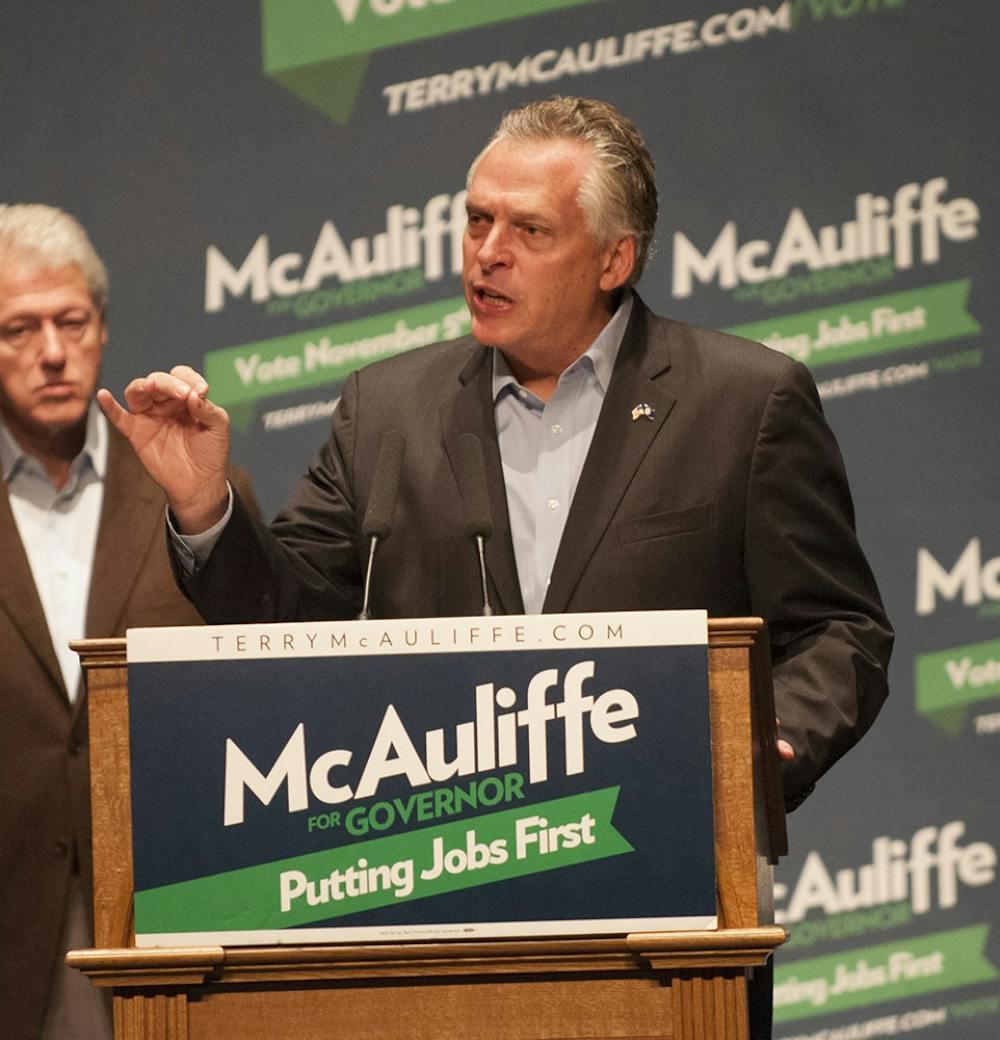Gov. Terry McAuliffe announced Tuesday the current supply of drugs used by the Commonwealth for lethal injections will expire in Sept. 2015.
Virginia currently uses a three-drug protocol which involves an anesthetic, the paralytic agent Pavulon and potassium chloride, which stops the heart. McAuliffe did not specify which of the three drugs will expire first, but the Commonwealth is in the process of finding alternative methods before next fall.
A shortage of drugs required for lethal injection is becoming increasingly common in the States as European drug manufacturers increasingly prohibit exporting drugs for capital punishment. Domestic drug manufacturers are growing similarly reluctant to sell their products for executions.
The Commonwealth passed a bill in February which allows the state to use the drug Midazolam as an alternative to one of the two most common anesthetics — pentobarbital and thiopental sodium — currently used in lethal injections. Midazolam will act only as a substitute if neither pentobarbital nor thiopental sodium is available. Other states have instituted similar bills authorizing Midazolam.
There is dissent, however, over the drug’s effectiveness as a viable substitute. Midazolam helped make up the two-drug cocktail used in the 24-minute botched execution of an Ohio inmate in Jan. 2014, prompting the subject’s family to file a suit against the drug manufacturer.
One of the issues facing Virginia in running out of capital punishment drugs is the possibility that execution orders will bottleneck. Because Commonwealth law currently states an inmate must be granted death by manner of their choice — either by the lethal injection or the electric chair — if an inmate selects lethal injection and there is a shortage or required drugs, the inmate cannot be executed by electrocution. Legislation which would have allowed the electric chair to be used as a substitute was proposed in 2014 but was eventually shot down.
In order to comply with the inmate’s chosen method of execution the state has looked toward legislation to incentivize pharmaceutical companies to sell the drugs to the prison system. One such bill would hide both the names of the drug manufacture when the sale of the drugs is disclosed. A similar bill proposed last month would allow the state to employ individual pharmacists to synthesize the drugs, hiding the pharmacists’ identities.
Neither of the two bills has passed.
The argument behind the proposed bills is that in keeping the names of manufacturers secret, manufacturers will not receive negative publicity and will be more willing to sell the lethal drugs.
Frank Knaack, the American Civil Liberties Union Virginia director of policy and communications, said this reasoning is unfounded. He said the American Bar Association published a report last month showing no evidence of bias or harassment against manufacturers of drugs used in capital punishment.
Moreover, Knaack said the ACLU believes announcing the shortage is a way for the state government to push its legislative agenda and decrease the transparency of the process of capital punishment.
“As there is no one schedule for execution this year, we see this as an attempt [by the Commonwealth] to pass the secrecy act and hide the process from the public,” Knaack said.
Knaack also said the Commonwealth’s attempt to utilize the electric chair when there are no available drugs does not address the underlying problem with the process of capital punishment. Though the ACLU is opposed to capital punishment altogether, Knaack said there should be an increased focus on promoting transparency in the process leading up to execution.
“We think the government is missing the problem, instead of focusing on which method of execution to carry out they should focus on ensuring that the trial process is fair and accurate,” Knaack said.
There are no executions currently scheduled for 2015, and the last one conducted by the Commonwealth occurred in 2013.







